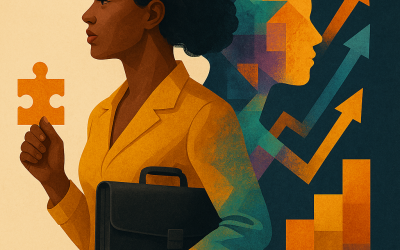Success is rarely a solitary endeavour. It’s a mosaic—built from the wisdom, experiences, and generosity of others.
Isaac Newton and Nikola Tesla embodied the spirit of lifelong learning, constantly pushing the boundaries of knowledge and innovation.
True learning isn’t just about receiving knowledge; it’s about recognising the value in every perspective, even in places we might not expect.
One conversation that encapsulated this idea came from Margaret, a board member of a global pharmaceutical company. I once asked her why she always had an open door with me—why someone of her stature was always willing to engage. Her response was simple yet profound:
“Because there is no one so stupid that I can’t learn something from them.”
At first, I wasn’t sure if that was a compliment or not. I’m still not sure but as the words settled, I realised their power. It wasn’t about intelligence or hierarchy—it was about humility.
Margaret’s perspective speaks to a deeper truth about leadership:
- Genuine leaders never stop learning – They understand that insight can come from any conversation, regardless of rank or experience.
- The best ideas often emerge from unexpected sources – Some of the most transformative concepts in pharma, science, and business have been sparked by unlikely voices.
- Engagement fosters innovation – By listening without ego, leaders unlock new perspectives that drive progress.
Pharmaceutical industry’s biggest breakthroughs—whether in drug development or market access, are rarely the product of a single mind. They result from cross-functional collaboration, blending expertise from scientists, regulators, healthcare providers, business strategists and insights from patients and carers.
Margaret’s words serve as a reminder to engage deeply, to recognise that every person carries knowledge we don’t yet have.
So how do we apply this mindset in real life?
- Approach every conversation with curiosity – Instead of filtering voices by status or expertise, listen with an open mind.
- Encourage mentorship at all levels – Learning doesn’t have to flow downward; reverse mentorship can be equally powerful.
- Challenge assumptions – Innovation happens when we welcome perspectives we might not immediately understand.
- Make openness a leadership standard – True empowerment comes when we invite collaboration, rather than guard access to knowledge.
At the heart of this philosophy is a simple but transformative idea: great leaders remain students, always learning, always refining.
Margaret’s comment stuck with me not because of its sharpness, but because of its truth. There is always something valuable to take from every interaction, and the moment we assume otherwise, we stop growing.




